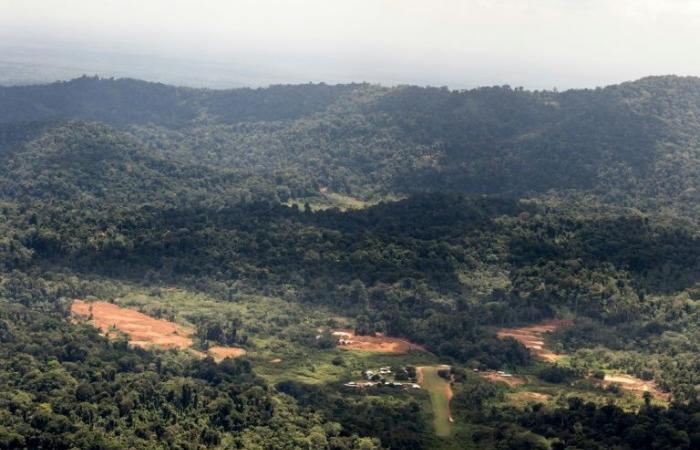The Bordeaux administrative court of appeal confirmed on Wednesday that the concessions of the mining company Montagne d’Or, which has been carrying out a major open-air mining project in Guyana for several years, could not be extended.
This project “presents a risk of serious harm to the environment” given the “extremely polluting” nature and the “importance” of its industrial dimension, considers the court whose decision may still be subject to review. an appeal to the Council of State.
Montagne d’Or is the largest primary gold extraction project ever proposed in France, led by the Russian-Canadian consortium Nordgold-Orea mining (formerly Columbus gold).
At the end of 2020, the Cayenne administrative court annulled a decision of January 21, 2019 by which the Ministry of the Economy refused to extend two concessions for 25 years, as requested since 2018 by the promoters of Montagne d’or.
Decision that the Bordeaux Administrative Court of Appeal confirmed in the summer of 2021.
But in February 2022, the Constitutional Council declared contrary to the French Basic Law a part of the old mining code which allowed concessions to be renewed without taking into account the environmental consequences, opening a route of appeal against the controversial project in Guyana.
In October 2023, the Council of State, seized by the Ministry of the Economy, annulled the judgments of the Bordeaux administrative court of appeal from 2021 and referred the case to this same court.
“In view of this new legal framework”, the court this time examined the environmental consequences of the concession extensions requested by the mining company, concluding that the refusal by the administration was legal.
It thus notes that the concessions in question, totaling approximately 40 km2, “are located in the equatorial forest of Guyana which constitutes one of the richest ecoregions in the world in terms of biodiversity” and that the area presents “important challenges of ecological continuity”.
The environmental associations Guyane Nature Environnement (GNE) and France Nature Environnement (FNE), at the initiative of the priority question of constitutionality before the Constitutional Council, said they were “satisfied” with the AFP with the decision.
“The court underlines that the two Montagne d’Or concessions are located in the middle of exceptional biodiversity reserves and that such mining projects which are devastating for the environment cannot be justified despite the economic and employment benefits,” responded Anne Roques, lawyer at FNE.
The decision represents “a definitive halt to the extension of concessions for reasons of environmental impact, provided that CMO does not go to the Council of State for a second time,” added Nolwenn Rocca, of GNE.
The old mining code, in its version prior to the overhaul due to the Climate law of 2021, allowed concessions to be extended by law when the deposits to which they relate were still exploited.
ppy-gr/tbm/mat/sp






